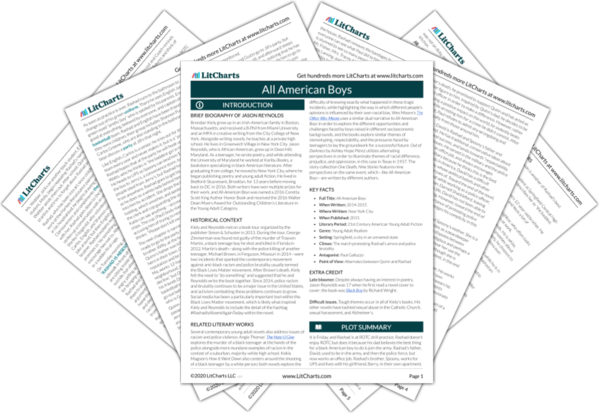AI ToolsNew
Tools to make learning and teaching easier
|
Previous
Summary
|
All American Boys: 1. Friday: Rashad Summary & Analysis |
Next
2. Friday: Quinn
|


Upgrade to unlock the analysis and theme tracking for all of All American BoysAll American Boys!
Get LitCharts A+